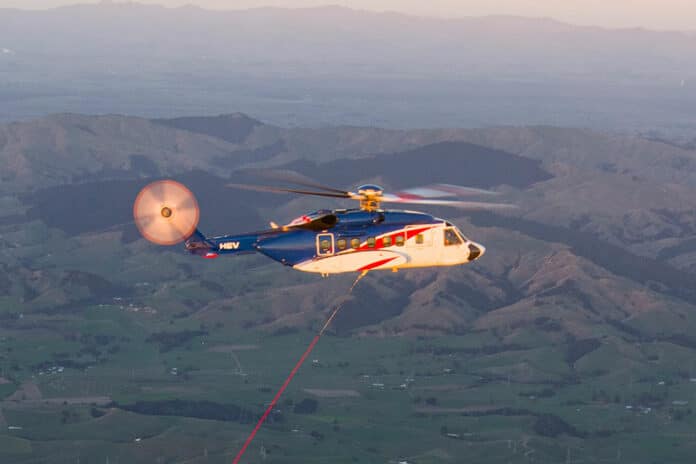American aerospace company Rocket Lab has announced that it will attempt to launch an Electron rocket with a helicopter as it returns to Earth from space during the company’s next launch. Its 32nd Electron launch, the “Catch Me If You Can” mission, is scheduled to launch from Pad B at Rocket Lab Launch Complex 1 during a launch window opening on November 04.
The mission will see Rocket Lab attempt to capture the rocket’s first stage mid-air with a helicopter as it returns from space. Shortly before lift-off, the modified Sikorsky S-92 helicopter will deploy to the capture zone at sea, approximately 160 nautical miles off New Zealand’s Banks Peninsula.
Once launched, Electron’s first and second stages will separate. The MATS payload will continue to orbit onboard the rocket’s second stage while Electron’s first stage descends back to Earth. At this point in the mission, Electron’s return is expected to reach speeds of up to 8,300km (5,150 miles) per hour.
Seven minutes and some change into the launch, the booster’s first parachute will deploy, followed shortly after by the rocket’s main parachute, slowing the returning first stage down from 8,300 km/h (5,157 mph) to just 36 km/h (22 mph). As Electron enters the capture zone, Rocket Lab’s recovery helicopter will match the rocket’s speed and descent from above, using a hook to try and snatch the booster by the parachute line. Once captured and secured, Electron will be transported back to Rocket Lab’s Auckland Production Complex, where it will be assessed and, if all goes well, deemed ready for re-use.
This Electron recovery effort follows the catch of an Electron first stage during Rocket Lab’s first helicopter recovery attempt on the “There And Back Again” launch in May, and the recovery attempt for this mission will follow the same concept of operations as the previous launch.
The Electron rocket will carry Mesospheric Airglow/Aerosol Tomography and Spectroscopy (MATS), a science research satellite, by space systems provider OHB Sweden for the Swedish National Space Agency (SNSA). MATS is supposed to investigate atmospheric waves and better understand how the upper layer of Earth’s atmosphere interacts with wind and weather patterns closer to the ground.
“Our first helicopter catch only a few months ago proved we can do what we set out to do with Electron, and we’re eager to get the helicopter back out there and advance our rocket reusability even further by bringing back a dry stage for the first time,” says Peter Beck, Rocket Lab CEO, and founder.
